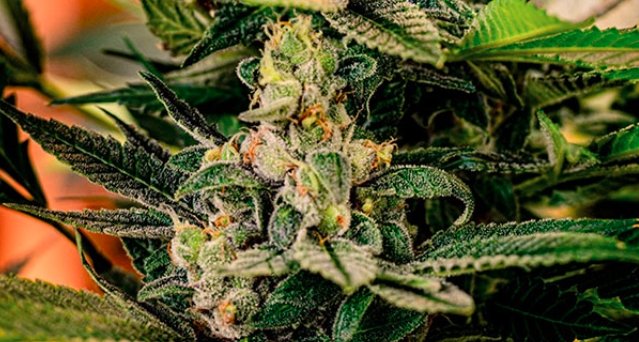Cannabis is one of the most controversial and widely used substances in the world. Despite its popularity, it remains illegal at the federal level in the United States, classified as a Schedule I drug with no accepted medical use and high potential for abuse. However, this could soon change, as the Drug Enforcement Administration (DEA) is considering rescheduling cannabis to a lower category, following a recommendation from the Department of Health and Human Services (HHS).
This decision could have significant implications for the future of cannabis research, regulation, and industry, as well as the social and economic impacts of cannabis prohibition. To explore these issues, the S3 Collective, a group of cannabis experts and advocates, hosted a webinar on January 25, 2024, titled “Influencing Our Future: A Webinar on Cannabis Rescheduling”. The webinar featured four panelists who discussed the current status, challenges, and opportunities of cannabis rescheduling, as well as the best practices and strategies for influencing the outcome.
What is Cannabis Rescheduling and Why Does It Matter?
The first panelist, Dr. Sue Sisley, a physician and researcher who has conducted clinical trials on the efficacy of cannabis for treating post-traumatic stress disorder (PTSD), explained the basics of cannabis rescheduling and why it matters for the scientific community. She said that cannabis rescheduling is the process of changing the legal status of cannabis under the Controlled Substances Act (CSA), which categorizes drugs into five schedules based on their medical value and potential for abuse.
Cannabis rescheduling is important because it would remove many of the barriers and restrictions that hinder cannabis research, such as the need for a special DEA license, the limited supply and quality of federally approved cannabis, and the lack of funding and incentives for studying cannabis. Dr. Sisley said that rescheduling cannabis would allow researchers to access more diverse and potent strains of cannabis, conduct more rigorous and innovative studies, and collaborate more easily with other institutions and countries.
What is the Current Status of Cannabis Rescheduling?
The second panelist, Matt Zorn, a lawyer and partner at Yetter Coleman, who sued HHS to obtain the documents related to its cannabis rescheduling recommendation, shared the latest developments and insights on the current status of cannabis rescheduling. He said that HHS recommended to DEA in August 2023 that cannabis be moved from Schedule I to Schedule III, based on a scientific and medical evaluation conducted by the Food and Drug Administration (FDA) in consultation with the National Institute on Drug Abuse (NIDA).

HHS’s recommendation is based on the recognition that cannabis has some therapeutic applications and is less harmful than other controlled substances on lower schedules, such as opioids and benzodiazepines. However, Zorn said that DEA has the final authority to decide whether to accept or reject HHS’s recommendation, and that there is no clear timeline or deadline for DEA to make its decision. He also said that DEA could choose to reschedule cannabis to a different schedule than HHS suggested, or to deschedule cannabis altogether, which would remove it from the CSA and allow states to regulate it as they see fit.
What are the Challenges and Opportunities of Cannabis Rescheduling?
The third panelist, Shaleen Title, a former commissioner of the Massachusetts Cannabis Control Commission and a co-founder of the S3 Collective, discussed the challenges and opportunities of cannabis rescheduling from a regulatory and industry perspective. She said that cannabis rescheduling would have significant implications for the existing state-legal cannabis markets, which operate in conflict with federal law and face various challenges, such as banking access, taxation, and interstate commerce.
Cannabis rescheduling could create both opportunities and challenges for the state-legal cannabis industry, depending on how DEA implements it. Title said that rescheduling cannabis to Schedule III could benefit the industry by allowing it to take federal tax deductions, access banking services, and conduct interstate trade. However, it could also create new challenges, such as increased federal oversight, regulation, and enforcement, as well as potential competition from pharmaceutical companies and other new entrants. Title said that descheduling cannabis would be the best option for the industry, as it would eliminate the federal-state conflict and allow states to regulate cannabis according to their own needs and preferences.
How Can We Influence the Outcome of Cannabis Rescheduling?
The fourth and final panelist, Steve DeAngelo, a cannabis activist and entrepreneur who founded Harborside, one of the largest and most respected cannabis dispensaries in the country, offered his advice and guidance on how to influence the outcome of cannabis rescheduling. He said that cannabis rescheduling is a historic opportunity to shape the future of cannabis in the United States, and that it is crucial for the cannabis community to be involved and engaged in the process.
DeAngelo said that the cannabis community can influence the outcome of cannabis rescheduling by educating themselves, organizing, and advocating for their interests and values. He said that the cannabis community should learn about the history, science, and politics of cannabis, and understand the implications and consequences of different rescheduling scenarios. He also said that the cannabis community should organize and mobilize its members, allies, and stakeholders, and form coalitions and networks to amplify its voice and impact. Finally, he said that the cannabis community should advocate for its interests and values, and communicate its vision and goals to the public, the media, and the decision-makers.
The webinar concluded with a Q&A session, where the panelists answered questions from the audience and shared their final thoughts and recommendations on cannabis rescheduling. The webinar was recorded and is available on the S3 Collective’s website for those who missed it or want to watch it again.



